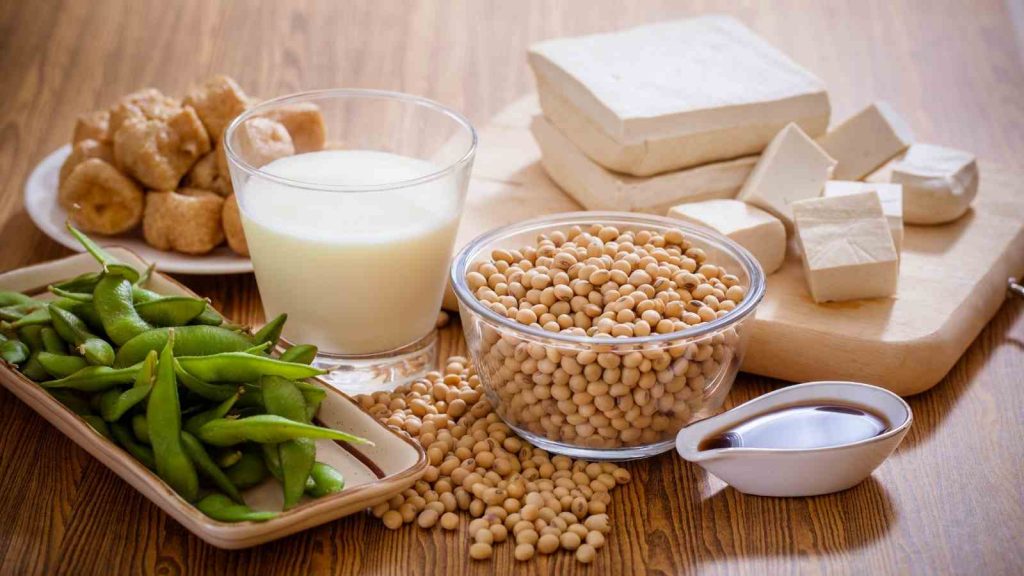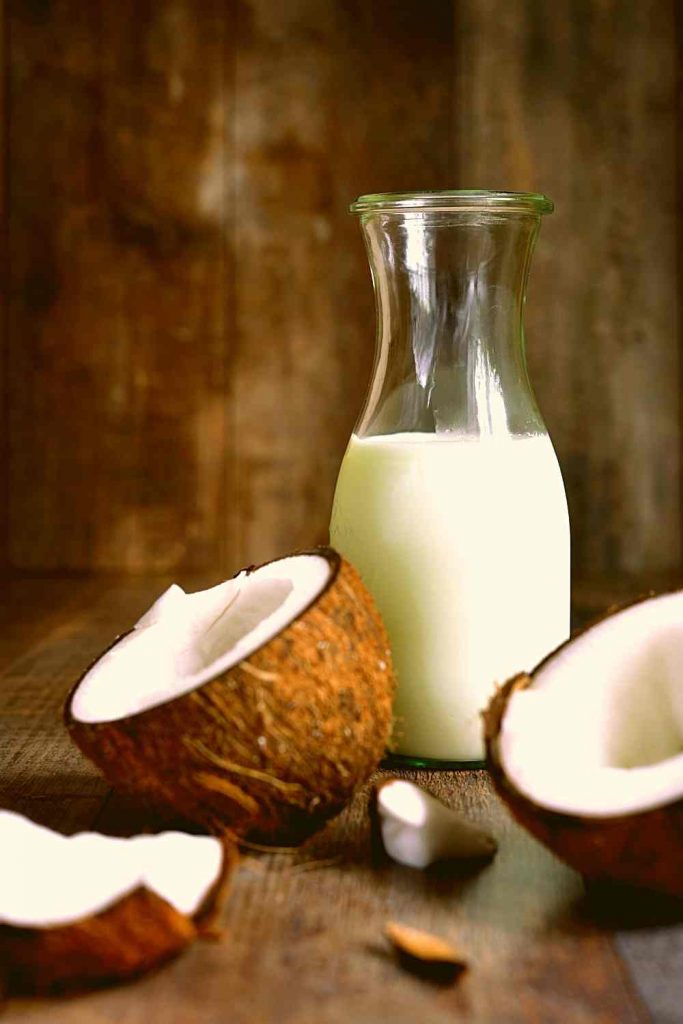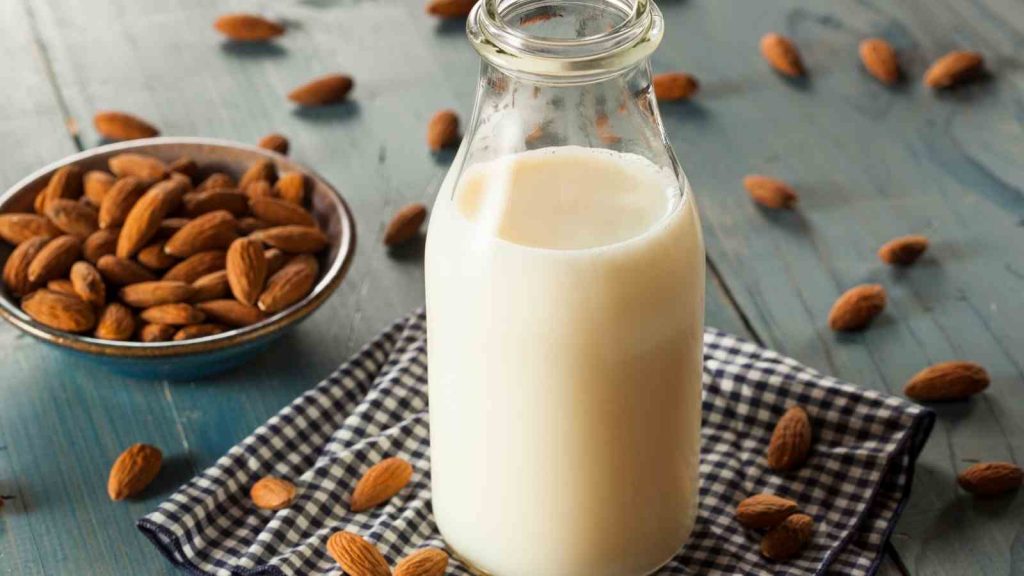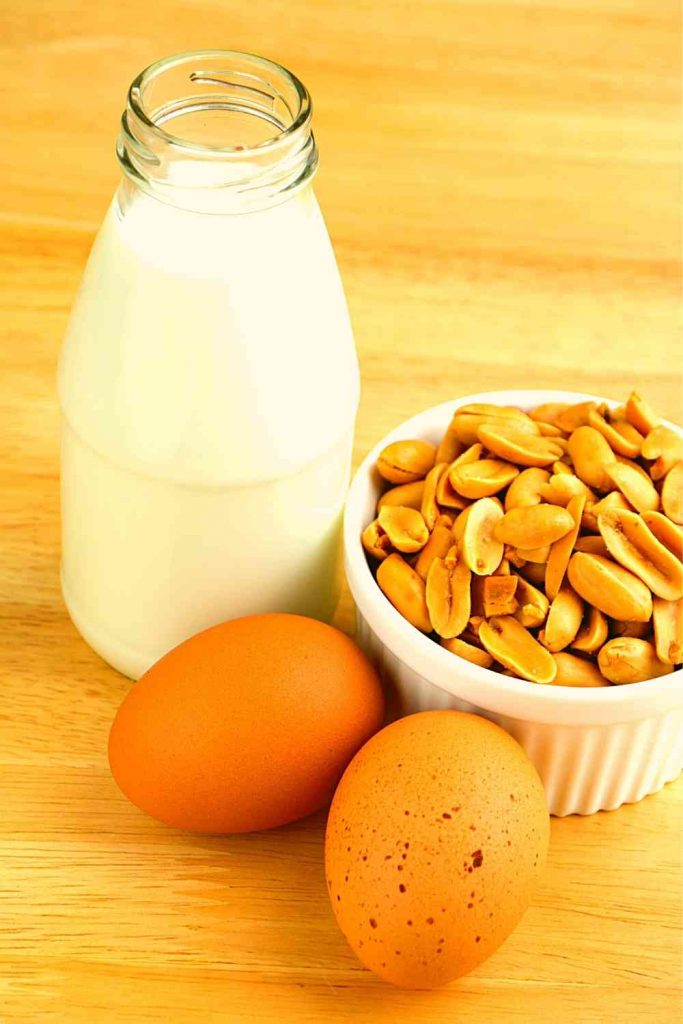Essentially, the dairy sector believes that the name "milk" should only be used to goods derived from cows, but the corporations that manufacture these products disagree. The Plant-Based Food Association, for example, claims that customers aren't perplexed, that they prefer the word "milk" to "beverage" or "drink," and that they understand that almond milk, for example, originates from almonds rather than a cow. Senators from dairy-producing states petitioned the FDA in January 2020 to restrict plant-based products from being branded as milk, yoghurt, or cheese. However, the FDA has yet to make a decision on the matter. And businesses may continue to refer to these drinks as "milk."
Continue reading to learn what's the best non dairy substitutes for milk?
Choose the Right Non Dairy Substitutes for Milk
Jump to:
1. Soy
Unsweetened soy milk, perhaps the first milk replacement (and the most nutritionally close to dairy milk), has roughly 80 calories per cup and 8 grammes of plant-based protein derived from soybeans. Soy milk is created by soaking and mixing these tiny beans, then filtering the pulp before drinking. Soy substitutes are generally high in antioxidants and fibre, and they supply important polyunsaturated fats.

2. Pea Milk
Pea milk is a relatively recent addition to the realm of plant-based milks, prepared from pea protein isolate, water, and emulsifiers such as algal oil, sunflower oil, and guar and gellan gums. For 70 calories per cup, it's as creamy as soy but with a bit less nutty flavour. DHA, a vital omega-3 fatty acid associated with immunity, heart health, and cognition, is provided by algal oil. The unsweetened varieties include up to 8 grammes of protein per serving from a nutrient-dense source.
3. Coconut Milk
Coconut milk has a tropical flavour compared to other plant-based milks since it is manufactured from water and coconut cream (Vita Coco also utilises coconut water). Coconut milk has a greater fat content and lower carbohydrate content than nut or grain-based milks. The majority of the calories come from saturated fat, which may amount to up to 4g per cup, or 20% of your daily intake. However, because of the creamy smoothness and high fat content, you'll need less of it - particularly if you mix it with coffee or tea.
Check also: How To Open A Coconut

4. Oat Milk
Oat milk, the newest member to the group, is a creamy, delicately flavoured complement to coffee, tea, cereal, or a homemade smoothie. According to preliminary study, it has additional fibre, which may make it more satisfying than other replacement milks. However, oat milk has less protein than nonfat cow's milk or soy-based alternatives (2-4g versus 8g per cup). It also contains a few more calories than plain almond milk, which may add up quickly if you drink it regularly.
5. Almond Milk
The majority of commercial almond milks have 35-90 calories per cup, and there are a variety of mixes and unsweetened varieties to select from. They're largely composed of almonds and water, with a few extra emulsifiers and strengthening elements thrown in for good measure. The lower-calorie variants have roughly 1 gramme of protein and 1 gramme of fibre per serving (however Elmhurst's mix has about 5 grams of protein). If you're using almond milk as a dairy substitute in homemade smoothies, bear in mind that it's low in protein; you may boost the protein level by adding nut butter or chopped nuts.

6. Cashew Milk
In tea or homemade tea lattes, cashew milk is very delicious. For a lunchtime dose of L-theanine, a chemical contained in matcha that has been linked to cognition and attention, try it with matcha. Cashew milk is created in the same manner as almond milk (soaking, mixing, and filtering) and has a similar nutritional profile, with roughly 40-50 calories per cup. Cashews include zinc, copper, and magnesium, all of which are beneficial to your immune system. What's the difference between almond and cashew milk? The taste! Choose whatever you choose, as long as it's not sweetened.
7. Peanut Milk
Peanuts are the crown gem of meals, since they are beneficial to both you and the environment. They have a comparable flavour and nutritional profile as tree nuts (almonds, walnuts, cashews, and hazelnuts), but they grow underground and consume far less water. The nicest thing about peanut-based goods is that they are generally less expensive and richer in protein than other dairy substitutes (plus, they have a creamy taste and texture). Peanut milk is difficult to come by, but there are plenty of recipes online if you want to make your own!

8. Flax Milk
Flax milk has a bit more than meets the eye, with 70 calories per cup. The majority of store-bought variants are produced using a mix of water, flaxseed oil, and pea protein, making it nutritionally comparable to pea milk. Flax contains alpha-linolenic acid, which supports immunity and has been associated with a lower risk of heart disease.
9. Hemp Milk
Hemp milk, out of all the hemp products now on the market, is a good nutritional option. It's prepared by combining hulled hemp seeds with water, and depending on fortification, it contains magnesium, calcium, and vitamin D. At 60 calories a cup, you'll also receive omega-3 and omega-6 fatty acids, which are important for your immune system and cognitive, as well as roughly 3 grammes of protein. Hemp milk, on the other hand, has extremely little fibre when compared to milk derived from other seeds. The most common criticism of hemp milk is its flavour: Some people find its ultra-nutty taste harsh, particularly if they're accustomed to the sweeter notes of other plant-based alternatives.

10. Rice Milk
Rice milk is prepared by combining rice and water in a blender. In its unsweetened form, it's frequently fewer in calories than other milk replacements, but since the taste is so subtle, most varieties have added sugar. Unless you have an allergy to nuts, seeds, or legumes, you could be better suited with an alternate grain combination.




